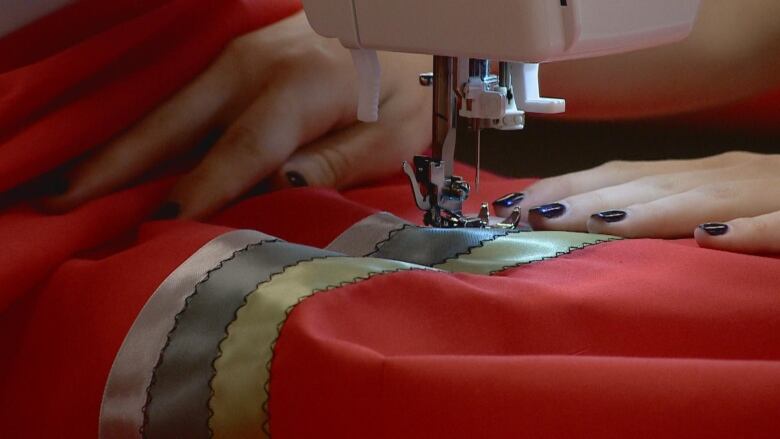National Ribbon Skirt Day bill passed, to be celebrated on Jan. 4
Bill was created after young First Nation's girl outcast for 'informal' ribbon skirt

A bill put forward by Senator Mary Jane McCallum to recognize National Ribbon Skirt Day has received Royal Assent and is now an act of parliament.
McCallum was inspired to create the bill after a young Saskatchewan girl named Isabella Kulak was shamed for wearing a ribbon skirt during a formal school event.
CBC has reported before that in 2021, Isabella was told by a teaching assistant that her skirt did not meet the requirements for 'formal wear' and was told she should have worn something store bought like the other students.
Ribbon skirts are traditionally worn in ceremonies and during special events by First Nations women and are representative of the person's identity, unique diversity and strength.
On CBC Radio One'sAfternoon Edition on Thursday, Isabella said she'd be wearing her ribbon skirt proudly on Jan. 4.
"It makes me really happy because lots of people can now wear their ribbon skirts [proudly]," Isabella said. "I hope they are now proud of who they are."
Her dad, Chris Kulak, saidhe was shocked to learn the educator had said that about Isabella's ribbon skirt.
"No child should be treated like that regardless of where they come from or who they are," he said.
Chris saidhe believes the reaction from the teaching assistant is onereasonthe movement gained so much traction.
He said many people likely had a hard time understanding why the educator said what she did to Isabella.
"It shows that it's still happening, and it's happening in our institutions and in our communities and I think your average Canadian was disgusted by that," he said.
He said he hopes National Ribbon Skirt day sparks conversations among people, Indigenous and non-Indigenous alike, about working towards reconciliation and starting a needed healing processin Canada.
A statement from Indigenous Services Canadasays Jan. 4 will be known as National Ribbon Skirt Day and it will "provide an opportunity for everyone in Canada to recognize, learn about, and celebrate the importance of Indigenous traditions and expressions of culture."
Chief George Cote from Cote First Nation, where Kulak is from, says the recognition of the day makes him feel proud of Isabella and happy that Indigenous women have the day to "show who they are."
"Especially the young generation, they don't have to be shameful of their culture and [they] have the courage to show who they [are]," he said. "There's so much racism out there and we should be proud of who we are, in order to live in harmony we need to share our culture with one another so we can understand one another."
In a statement, Senator McCallum said Bill S-219belongs to the community, "specifically, Isabella Kulak, Cote First Nation, and the wider community, both Indigenous and non-Indigenous, who supported its spirit and intent."
"The passage of Bill S-219 is a momentous achievement for Canada's Parliament, as it required that a historically colonial institution be transformed into a sacred space, empowering our youth in undertaking their own self-determining, self-affirming actions."
McCallum said that on Jan. 4, everyone is encouraged to proudly wear regalia that "represents the power of their respective cultures and heritages."
"Doing so will serve to facilitate dialogue, nurture understanding, and promote a more unified and tolerant Canada."
With files from The Afternoon Edition












_(720p).jpg)


 OFFICIAL HD MUSIC VIDEO.jpg)
.jpg)



























































































